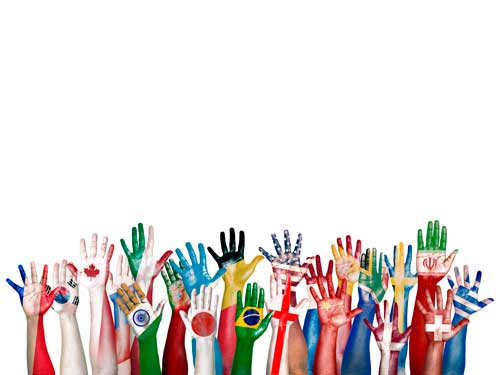




Apart from differences in age, sex and gender, physical characteristics, ability, experiences and personal attributes, individuals also differ in respect of their diet, religious beliefs and faith and communication needs and preferences.
We develop our beliefs, values and life experiences throughout our lives. As very small children we are dependent on close family and carers. They guide and shape our thoughts and behaviour and encourage and reward those that meet cultural customs, traditions and expectations in relation to manners, respect, what makes for right and wrong and so on. As we grow and become increasingly exposed to society, our preferences, attitudes, values and beliefs develop as a result of new experiences and the influence of factors such as role models, peer groups, education, religious institutions and the media. The personal attributes we develop throughout our lives promote the development of our identity and the way we want others to see us. They make us the individuals we are.
Ar wahân i wahaniaethau mewn oed, rhyw, nodweddion corfforol, gallu, profiadau a rhinweddau personol, mae unigolion hefyd yn amrywio mewn perthynas â'u deiet, credoau crefyddol a ffydd ac anghenion cyfathrebu a dewisiadau.
Rydym yn datblygu ein credoau, gwerthoedd a phrofiadau bywyd trwy gydol ein bywydau. Yn blant bach iawn rydym yn ddibynnol ar deulu agos a gofalwyr. Maen nhw'n llywio a ffurfio ein meddyliau ac ymddygiad ac yn annog a gwobrwyo'r rheiny sy'n ateb arferion diwylliannol, traddodiadau a disgwyliadau mewn perthynas â moesgarwch, parch, beth sy'n gywir ac anghywir ac yn y blaen. Wrth i ni dyfu a dod yn gynyddol agored i gymdeithas, mae ein dewisiadau, agweddau, gwerthoedd a chredoau yn datblygu o ganlyniad i brofiadau newydd a dylanwad ffactorau fel modelau rôl, grwpiau cyfoedion, addysg, sefydliadau crefyddol a'r cyfryngau. Mae'r rhinweddau personol a ddatblygwn trwy gydol ein bywydau yn hyrwyddo datblygiad ein hunaniaeth a'r ffordd y dymunwn i eraill ein gweld ni. Maen nhw'n ein gwneud yr unigolion yr ydym ni.

We all have our own values and beliefs, but it is important to work within the boundaries of our role by being respectful and mindful that not everyone shares the same opinions and values and equally that individuals have their own beliefs and values. Appreciating and respecting everyone’s point of view is important as well as aiming to avoid enforcing your own views, beliefs and opinions on others and devaluing or mocking theirs.
Mae gennym oll ein gwerthoedd a chredoau, ond mae'n bwysig i weithio o fewn terfynau ein rôl wrth fod yn barchus ac ystyriol nad yw pawb yn rhannu'r un agweddau a gwerthoedd ac yn yr un modd mae gan unigolion eu credoau a gwerthoedd eu hunain. Mae gwerthfawrogi a pharchu safbwynt pawb yn bwysig yn ogystal ag anelu at osgoi gorfodi eich agweddau, credoau a safbwyntiau eich hunain ar eraill a dibrisio neu ddilorni eu rhai hwy.

While a health and social care worker might not agree with the attitudes and behaviours of the individuals they work with, or the children and young people they support, nor share their preferences, inclusive work practice involves respecting and promoting:
Practice which does not demonstrate inclusive practice (for example, denying someone the opportunity to worship in the way that their religion dictates or to choose what to eat or wear) is oppression. Oppressive behaviour denies individuals their freedoms and is a form of abuse.
Tra gallai gweithiwr iechyd a gofal cymdeithasol beidio â chytuno ag agweddau ac ymddygiadau yr unigolion maen nhw'n gweithio gyda hwy, neu'r plant a phobl ifanc a gynorthwyant, nac yn rhannu eu dewisiadau, mae ymarfer gwaith cynhwysol yn golygu parchu a hyrwyddo:
Ymarfer sydd ddim yn dangos ymarfer cynhwysol (er enghraifft, mae gwadu'r hawl i rywun addoli yn y ffordd mae eu crefydd yn mynnu neu i ddewis beth i'w fwyta neu'i wisgo) yn ormes. Mae ymddygiad gormesol yn gwadu eu rhyddid i unigolion ac mae'n ffurf o gamdriniaeth.